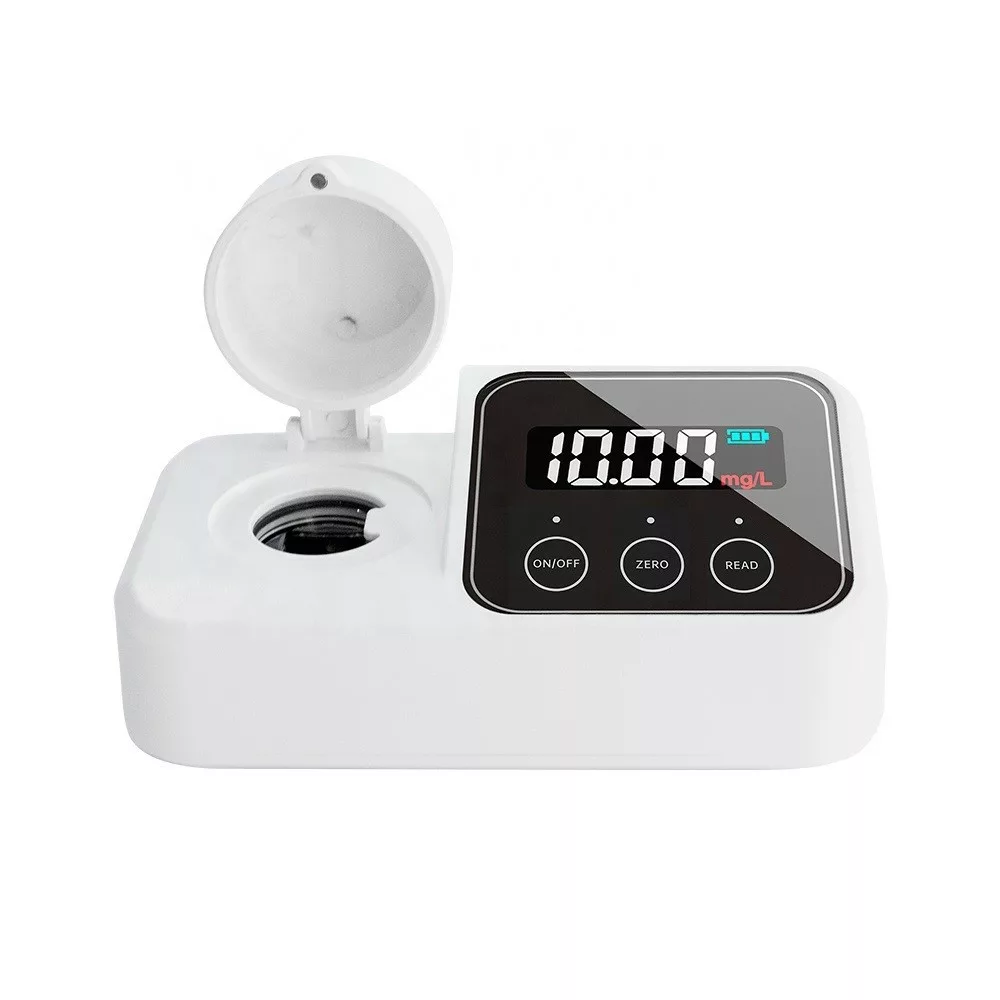Portable Phosphate Analyzer KPA/P/10: Accurate and On-the-Go Phosphate Monitoring for Water Quality
Phosphate is a critical parameter in water quality management, especially in environments such as wastewater treatment, environmental monitoring, and industrial processes. High levels of phosphate can lead to algal blooms and other environmental issues, making it essential to monitor and manage phosphate concentrations effectively. A Portable Phosphate Analyzer KPA/P/10 is an indispensable tool for professionals who need accurate, real-time measurements of phosphate levels on-site. Designed for ease of use, portability, and precision, these analyzers help ensure water safety and regulatory compliance.
What is a Portable Phosphate Analyzer?
A Portable Phosphate Analyzer is a compact, handheld device designed to measure the concentration of phosphate in water. Phosphates, often introduced into water bodies through agricultural runoff, industrial discharge, or wastewater, can significantly impact water quality by promoting excessive algae growth, leading to eutrophication. Monitoring phosphate levels is essential for maintaining ecological balance and complying with environmental regulations.
The portability of these analyzers allows for convenient, on-the-spot testing in various locations, from rivers and lakes to industrial facilities. This immediacy is particularly valuable for environmental scientists, water treatment operators, and industrial technicians who require fast and reliable data to make informed decisions.
Key Features of a Portable Phosphate Analyzer
- High Sensitivity and Accuracy: Portable Phosphate Analyzers are equipped with advanced sensors that provide precise measurements, often capable of detecting low levels of phosphate in parts per million (ppm) or even parts per billion (ppb). This accuracy is crucial for detecting small but significant changes in phosphate concentrations.
- Instantaneous Results: With digital displays and quick response times, these analyzers provide real-time data, enabling users to take immediate action based on the latest phosphate readings.
- User-Friendly Interface: These devices are designed for ease of use, typically featuring intuitive controls, automatic calibration, and straightforward operation. This makes them accessible to a wide range of users, from experienced professionals to those new to water quality testing.
- Rugged and Portable Design: Built for field use, Portable Phosphate Analyzers are often housed in durable, water-resistant casings that can withstand harsh environmental conditions, ensuring reliable performance in various settings.
- Battery-Powered Operation: These analyzers are typically powered by batteries, allowing for extended use in remote or outdoor locations without the need for an external power source.
- Data Logging and Connectivity: Many models come equipped with data logging capabilities, allowing users to store multiple readings for later analysis. Some analyzers also offer wireless connectivity for easy data transfer to computers or smartphones, facilitating further analysis and reporting.
Benefits of Using a Portable Phosphate Analyzer
- On-the-Spot Testing: With a Portable Phosphate Analyzer, you can perform phosphate testing directly at the water source, providing immediate and actionable data that is crucial for maintaining water quality and compliance with environmental regulations.
- Real-Time Monitoring: These analyzers offer instantaneous readings, allowing for continuous monitoring and prompt intervention if phosphate levels exceed acceptable limits.
- Versatility Across Applications: Portable Phosphate Analyzers are versatile tools that can be used in various settings, including environmental monitoring, wastewater treatment, and industrial processes.
- Enhanced Water Safety: Regular monitoring of phosphate levels helps prevent the negative impacts of eutrophication, such as algal blooms, which can harm aquatic life and degrade water quality.
- Regulatory Compliance: Many industries and municipalities are subject to strict regulations regarding phosphate levels. Portable Phosphate Analyzers help ensure compliance with these standards, avoiding potential fines and legal issues while protecting the environment.
- Cost-Effective Monitoring: By providing fast, on-site phosphate measurements, these analyzers reduce the need for costly laboratory testing and help identify potential issues before they escalate into major problems.
Applications of Portable Phosphate Analyzers
- Environmental Monitoring: Environmental scientists use Portable Phosphate Analyzers to monitor phosphate levels in natural water bodies such as rivers, lakes, and reservoirs. These measurements help assess the impact of agricultural runoff, industrial discharge, and other sources of pollution on aquatic ecosystems.
- Wastewater Treatment: In wastewater treatment plants, controlling phosphate levels is essential to prevent nutrient pollution and protect downstream water bodies. Portable Phosphate Analyzers allow operators to monitor phosphate levels throughout the treatment process, ensuring that the treated effluent meets environmental safety standards.
- Agriculture: In agricultural settings, phosphates from fertilizers can run off into nearby water bodies, leading to pollution and eutrophication. Portable Phosphate Analyzers enable farmers and environmental managers to monitor and manage phosphate levels, promoting sustainable agricultural practices.
- Industrial Processes: In industries such as food processing and chemical manufacturing, phosphates are often used in various processes. Portable Phosphate Analyzers help monitor phosphate levels in wastewater, ensuring compliance with environmental regulations and preventing pollution.
- Drinking Water Treatment: Phosphates are sometimes added to drinking water to prevent pipe corrosion, but their levels must be carefully controlled. Portable Phosphate Analyzers allow water treatment operators to monitor phosphate concentrations and ensure the safety and quality of drinking water.
- Educational and Research Institutions: Researchers and educators use Portable Phosphate Analyzers in laboratories and field studies to investigate the effects of phosphates on water quality and aquatic ecosystems. These analyzers provide accurate, real-time data that is essential for scientific research and education.
Choosing the Right Phosphate Analyzer
When selecting a Phosphate Analyzer, it’s important to consider the specific needs of your application, including the required measurement range, accuracy, and sensitivity. Additionally, evaluate the device’s portability, battery life, and durability, especially if it will be used in challenging field conditions.
Look for features such as automatic calibration, data logging, and connectivity options that can enhance the usability and efficiency of the device. A rugged design with water-resistant housing is particularly beneficial for outdoor or industrial applications where environmental conditions can be unpredictable.
Conclusion
A Portable Phosphate Analyzer is an essential tool for professionals responsible for monitoring and maintaining water quality. These analyzers provide the accuracy, convenience, and real-time data needed to ensure that phosphate levels are within safe and effective ranges, whether in environmental monitoring, wastewater treatment, or industrial applications.
By choosing the right Portable Phosphate Analyzer, you can confidently monitor phosphate levels wherever you are, ensuring that you have the critical information needed to maintain optimal water quality and comply with regulatory standards. Explore our selection of Portable Phosphate Analyzers to find the perfect solution for your monitoring needs.





Reviews
There are no reviews yet.